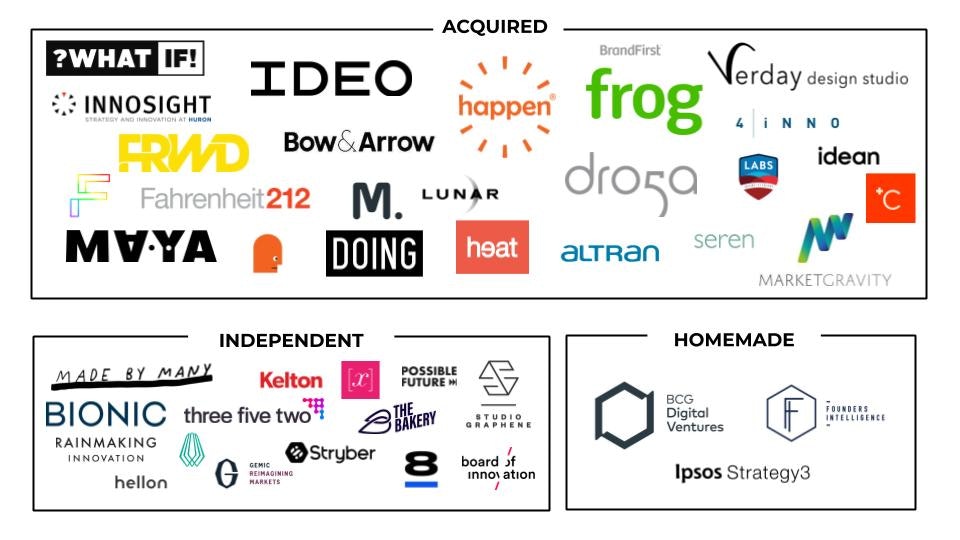Procurement is often blamed for the failure of startup–corporate collaboration. [See for example our piece from last month: The hidden stumbling block for corporate-startup deals: procurement]
I’ve had plenty of execs on the phone to me over the years blaming my teams for delays to their projects. There are plenty of horror stories of the process taking so long that the startup ends up going out of business. At an event some years ago I even heard a VC openly advise their portfolio companies not to sell to big banks because it will take too long.
But the truth is, procurement processes have already been streamlined a lot at big corporations. In the face of significant disruption, most now realise that their continued success (and perhaps survival) depends on their ability to partner with more nimble players to remain relevant.
Procurement is a convenient bogeyman to blame, but often it is issues like data privacy, IT security and liability that slow things down.
Most of us in big banks were aware that there were parts of technology that we couldn’t do ourselves — we are a bank, not a tech company— and we need to make it easier for people to work with us or quite simply, they’d take their business elsewhere. By creating dedicated teams to onboard startups, along with simplified contracts, some companies have managed to reduce onboarding times significantly.
But it is not just about procurement departments needing to speed up. Whilst procurement is a convenient bogeyman to blame for slowing things down, it is often issues like data privacy, IT security and liability that are the problem. These are areas where banks need to be careful.
I would get pushback from senior managers, asking why we should speed things up, when we were potentially bringing toxic waste into the company.
Sometimes when I talked about trying to speed up the process, I would get pushback from senior managers, asking why we should speed things up, when we were potentially bringing toxic waste into the company. We only have to look at the disaster with Theranos to see the dangers of reckless speed when dealing with startups…
Startups need a better understanding of what banks need. Sometimes the founders come from banks and understand exactly what is required, but other times they are recent university graduates who have no idea how difficult it is to get the go-ahead for a project that requires the sharing of really sensitive data. I was once presented with a statement of work that was less than a sheet of A4 paper.
Top tips
- Start small. A pilot project that uses no real data will always be easier to get started. Once you have your foot in the door it is easier to progress to bigger deals.
- Contractual review. Don’t be scared. Banks aren’t (usually) trying to screw you (we’re not that smart). There are simply clauses and positions, mostly related to data privacy and security, that negotiators are unable to compromise on. Identify these early, know if these are deal-breakers for you. Be pragmatic and accept you don’t have the much leverage in this situation. Banks have hundreds of lawyers on payroll, accept what you can and move on.
- Be upfront about what you need from the corporation. If you need to be paid faster, be explicit about that. Many times the corporation is able to help on specific issues but they don’t know if you don’t tell them!
- Understand that for some projects procurement will take a long time. A typical bank sales cycle is 12 months.
- Learn to recognise when you need to walk away. Sometimes the problem isn’t just a long sales cycle. It could be that the project never really had budget allocated to it, or that project resources have been allocated to a different project with higher priority. Be aware that people at banks love to go to conferences and talk to startups. Unfortunately, most of these conversations will not result in real sales. Identify if you’re talking to the right people; ask if they have an approved budget for their project, ask if they have secured IT resources. If the answer is no, be prepared to walk away.
- Find the right executive sponsor. Sometimes the key to getting a deal through procurement is having a senior exec pick up the phone to the right people. I’ve never worked harder or faster than when a CEO picked up the phone to my boss. They’ll smooth your path through as much of the bureaucracy as they can and give your project the right attention at the corners that can’t be cut.
All that said, it can be difficult to find out about the procurement processes at big companies. There is no one place where these are published. Check out the work that the Fintech Delivery Panel are doing in this space.



